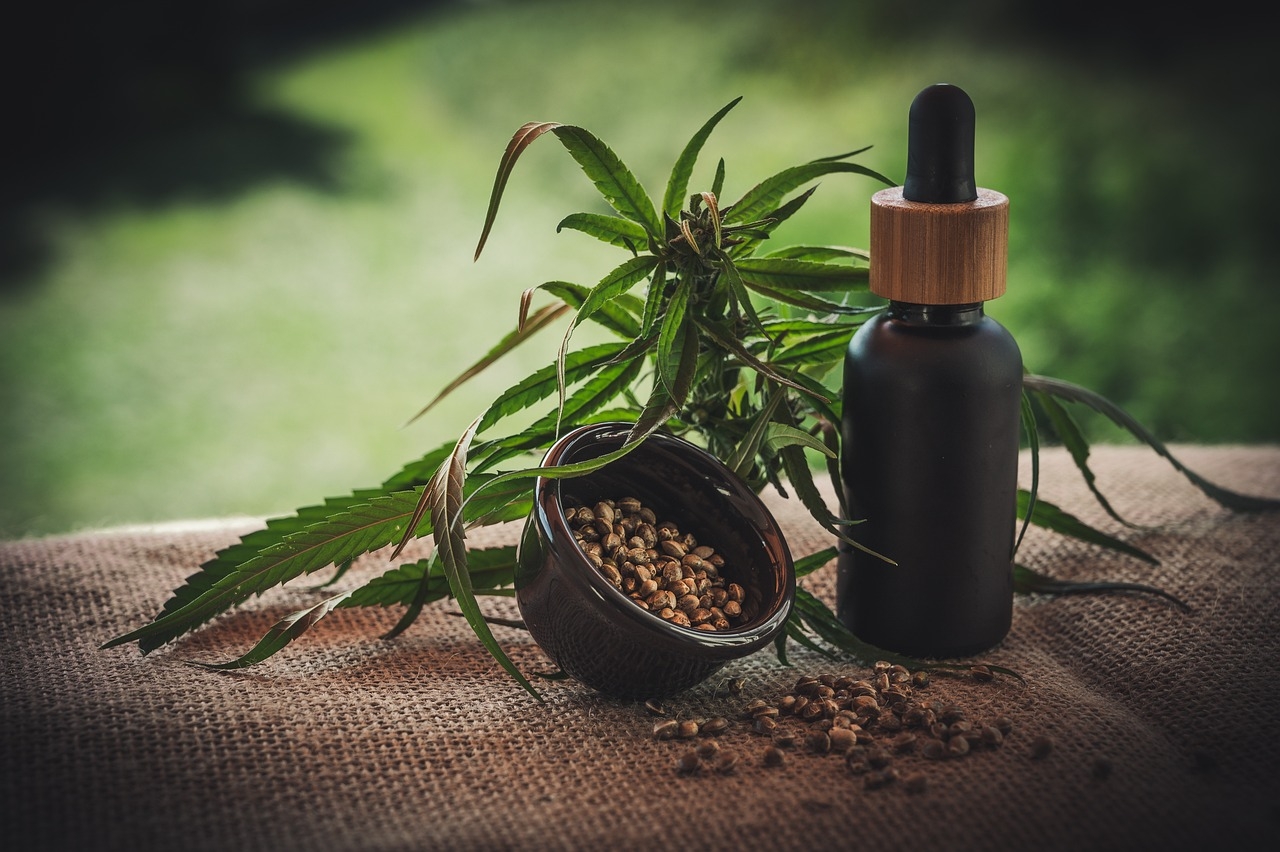
CBD, CBG, CBN
March 28, 2024
As a cannabis consumer, you’ve likely heard of CBD, but what about its cousins CBG and CBN?
In the following post, we’ll embark on a journey through the wonders of CBD, CBN, and CBG, uncovering the hidden qualities of each compound, their many benefits, and the best uses for each that set them apart.
Whether you’re a seasoned enthusiast or a curious newcomer, get ready to explore the exciting world of cannabis compounds and how you can potentially benefit from each.
Let’s demystify the buzz from fiction and discover which compound might be your new wellness ally.
What is CBD, CBG, & CBN?
Are you curious about the differences between CBD vs CBG vs CBN? With so much to learn about the cannabis plant, it can be challenging to know where to start.
Let’s start by looking more closely at CBD—the most popular compound—and how it can benefit you.
What is CBD?
CBD, also known as cannabidiol, is one of the most naturally occurring compounds in the cannabis plant. It exists as one of over 100 cannabinoids and is a non-psychoactive plant. In other words, you never get “high” off this compound—only THC can do that.
CBD has become increasingly popular due to its potential for therapeutic benefits, including relief from anxiety, pain, insomnia, and inflammation.
To acquire CBD, farmers extract it from the hemp plant. Today, it is widely used for various hemp products, including tinctures, topicals, and oils.
Origin of CBD
CBD was isolated from cannabis in 1940, and its structure was reported in 1963. However, because CBD isn’t psychoactive, researchers didn’t think it was worth studying more closely.
As science progressed—thankfully—research showed a host of potential benefits for CBD, which is firmly where we land today.
Research is still underway, but this compound has a slew of potential benefits and applications.
Potential Benefits and Applications
Anxiety
Studies and clinical trials continue to explore the connection between CBD and anxiety reduction. However, promising research indicates that it can be beneficial in reducing stress and anxiety symptoms caused by a variety of physical and mental issues.
Insomnia
The beauty of CBD is that it has the potential to help with both falling asleep and staying asleep. Depending on your situation, either benefit could radically change the quality of sleep you enjoy.
Chronic Pain
CBD is evolving as a promising treatment for chronic pain. Because CBD may inhibit anti-inflammatory and neuropathic pain, it offers researchers an exciting option for pain management. As we also know, CBD affects the body’s endocannabinoid system, and research is revealing how vitalthat system is in pain and disease.
Addiction
Another potential benefit of CBD is in fighting addiction. Cravings for tobacco and heroin are reduced by CBD use under certain circumstances. Animal models are also suggesting that it can help lessen cravings for alcohol, opiates, and stimulants.
What is CBG?
CBG, or Cannabigerol, is the lesser-known cannabinoid found in the cannabis plant. It is also referred to as the “mother cannabinoid” because it is a precursor to other cannabinoids like CBD and THC. Interestingly, despite it being less common than CBD, CBG is quickly gaining ground in the Cannabis market thanks to its many unique properties.
Here’s how it’s different from CBD.
CBG Vs. CBD
Unlike CBD, which is typically seen in higher concentrations in cannabis, CBG is found in smaller amounts in mature cannabis plants. CBG is often considered the ‘stem cell’ of cannabinoids,thanks to its role in synthesizing other cannabinoids.
CBG also has a unique chemical structure and its way of interacting with the endocannabinoid system.
Potential Benefits and Applications
Anti-inflammatory
Some research suggests that CBG could have anti-inflammatory properties and help aid conditions like inflammatory bowel disease.
Neuroprotectant
CBG could also be a neuroprotectant, providing potential benefits for neurological conditions.
Pain Management
CBG provides promising potential in pain management for a variety of chronic conditions.
Glaucoma
Like other compounds found in cannabis, CBG holds thepotential for treating glaucoma and other eye diseases.
Bacterial Infections
CBG offers many antibacterial benefits and could even be used to treat Staph infections, among other types.
What is CBN?
Cannabinol, or CBN, is one of the many cannabinoids found in the cannabis plant. Unlike THC (tetrahydrocannabinol), which is known for its psychoactive effects, CBN is a non-intoxicating compound. CBN is formed through the oxidation and decomposition of THC, a process that occurs as the cannabis plant ages or is exposed to light and air.
You can find CBN in higher concentrations in aged cannabis flowers or products. It will not produce the euphoric “high”associated with THC, which makes it attractive if you’re seeking the potential benefits of cannabinoids without the psychoactive effects.
CBN vs CBD
CBN is…
CBD is…
Potential Benefits and Applications
The cannabinoid CBN, or cannabinol, is present in trace amounts in the cannabis plant, but it is primarily a byproduct of the degradation of THC.
Cannabis that sits too long on the shelf has a reputation of becoming “sleepy old marijuana”—primarily because it has a higher concentration of CBN.
Not surprisingly, CBN is marketed for its sleep-inducing properties.
Potential Relief for Insomnia
Only one study has shown a link between increased sleepiness and CBN. However, many people claim it helps as a sleep aid.
Appetite Stimulant
Animal studies have shown that CBN can simulate the appetite in individuals who are ill or undereating.
Potential ADHD Relief
Now that we know more about CBD, CBG, and CBN, let’s look at them side-by-side.
Definition:
CBD: Cannabidiol is a prominent, non-psychoactive cannabinoid.
CBG: Cannabigerol, a lesser-known cannabinoid.
CBN: Cannabinol, a derivative of THC through oxidation.
Source:
CBD: Found in hemp plants.
CBG: Present in lower concentrations in cannabis.
CBN: Forms as THC ages.
Psychoactive Properties:
CBD: Non-psychoactive; does not induce a “high.”
CBG: Generally non-psychoactive.
CBN: Mild psychoactive effects, but much less than THC.
Potential Benefits:
CBD: Anxiety relief, pain management, anti-inflammatory.
CBG: Antioxidant, anti-inflammatory, potential neuroprotective effects.
CBN: Sedative, potential aid for sleep.
Safety Considerations:
CBD: Generally well-tolerated, with potential interactions with medications.
CBG: Limited studies on safety, generally considered safe.
CBN: Limited studies; some sedative effects; caution advised.
Legality:
CBD: Legal in many areas; hemp-derived CBD is widely accepted.
CBG: Legal in many regions where cannabis is legalized.
CBN: Generally considered legal; potential trace THC Content, however.
Cannabis & Its Amazing Compounds—Start Your Journey!
As we dive deeper into the intricacies of CBD, GBG, and CBN, we begin to see a fascinating tapestry of possibilities. CBD, as the boldest member of the cannabinoid family, continues to attract attention for its versatility and widespread application.
Meanwhile, we see CBG emerging as a unique player, offering distinctive characteristics that hint at targeted health benefits.
CBN, however, offers sleep-inducing potential and adds a new dimension to the cannabis conversation.
But amidst the intrigue, it’s essential to remember that everyone’s experience is unique. Research is needed to navigate this cannabinoid landscape effectively.
Discuss your concerns and questions about each of these beautiful cannabis compounds with the Blue Oak dispensary team to learn the best route for you to take!
Shop online, pick up in store or curbside



